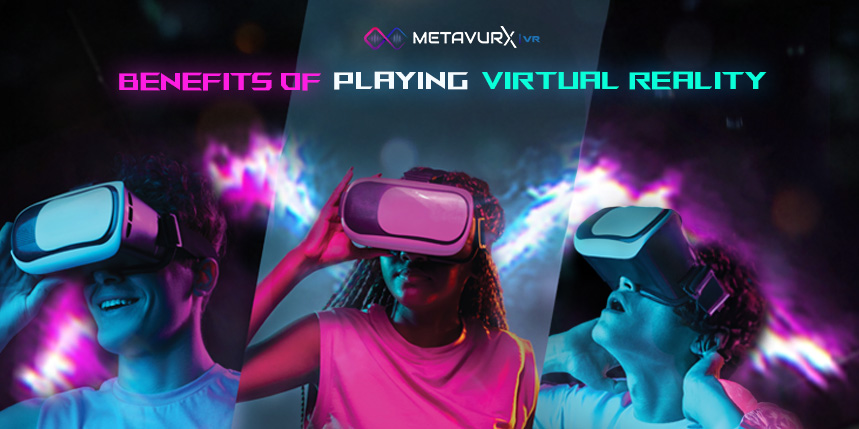Virtual Reality Experience: A computer technology called virtual reality (VR) produces a simulated environment. Users can experience and engage with an artificial world created by the computer. Unlike traditional user interfaces, virtual reality (VR) immerses the user in an experience. Users feel immersed in and can interact with that thrilling 3D world rather than just staring at a screen. By replicating vision, hearing, touch, and even smell, the computer becomes a gatekeeper to this virtual realm.
Virtual Reality Experience and Benefits of Playing VR
Promotes blood circulation
Moving around is an excellent technique to increase circulation and blood flow. Virtual reality is fantastic because it encourages movement. Research has shown that the positive impacts of virtual reality’s realism—which alters the entire environment—have been linked to health promotion. The benefits of health are demonstrated, along with a helpful method for consumers to continue leading a healthy lifestyle.
Reduce stress
Research has been conducted to demonstrate how well virtual reality reduces stress. Since engaging in actual recreational activities is an excellent way to decompress, simulating such scenarios in virtual reality (VR) is an accessible and affordable option to do so. Virtual reality (VR) is a great way to decompress, but it may also help you cultivate mindfulness through related activities like playing VR games.
Enhance your coordination and balance
According to a study, virtual reality improves balance and coordination. The brain regions that control balance and coordination when using virtual reality (VR) include the prefrontal, parietal, and other motor cortical areas. Research demonstrates how stimulating the cerebral cortex promotes ideal balance and improves neurological function in people with impaired nervous systems.
Develop soft skills
Soft skill training can be challenging. VR has the potential to enhance people’s acquisition of soft skills. Through VR, players can improve their readiness for real-world scenarios.
Trigger emotional response
The realistic virtual reality experience that VR provides can significantly increase emotional response. The increased sense of realism provided by virtual reality makes it feel like you are participating in an actual life activity.
A higher degree of emotional engagement results in players feeling more engaged and connected to the game, which improves outcomes. The heightened realism of virtual reality (VR) can potentially elicit emotional reactions positively correlated with memory recall.
VR offers an immersive virtual reality experience and gamification that can enhance learning outcomes and help comprehend fundamental concepts. Players’ gaming experiences can be significantly improved by visualizing the invisible, which also helps them understand and remember knowledge for longer.





